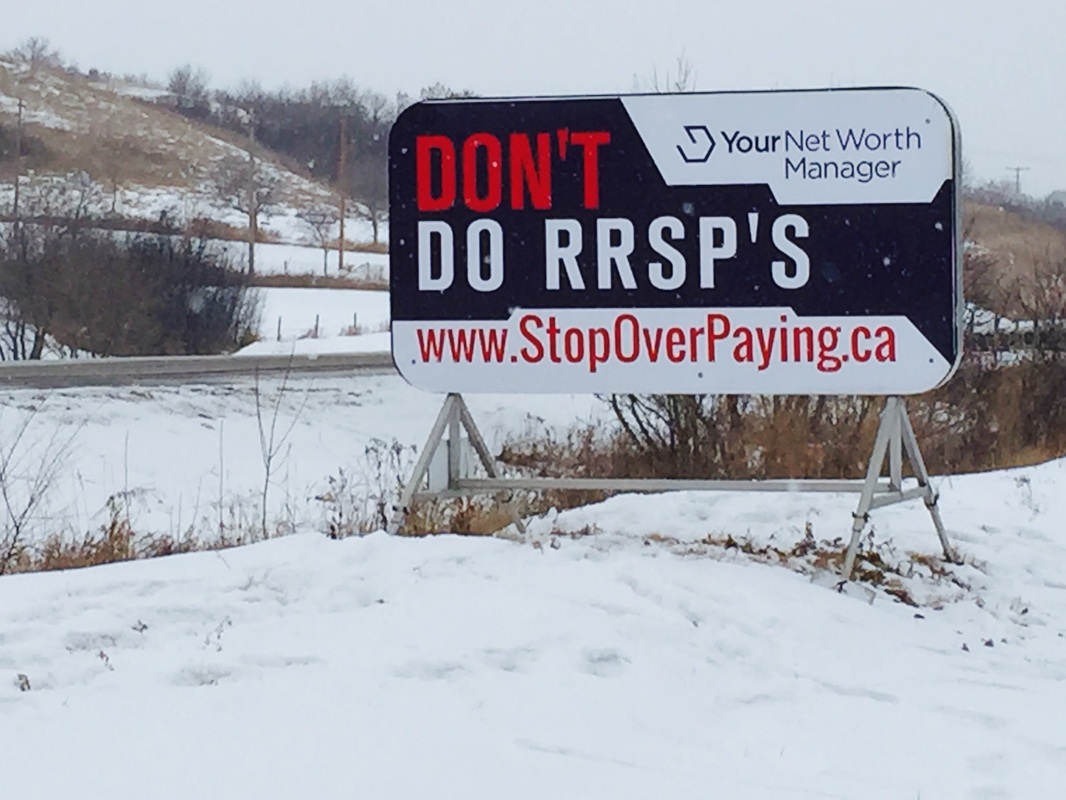Investment sales people may tell you to do RRSPs as they make commission on you
but is it really the best thing for YOU?
RRSPs can be a tax trapThink twice and contact us if:
|
Plans before products"What type of investment do you have?" "Oh I have an RRSP"
We hear this all the time. An RRSP holds investments it is not an investment . You should know what you have in your RRSP basket. No one cares about your money more than you so find out! Don’t do an RRSP unless you have a plan. Start with the end in mind. Plans first products last. Investing with RRSPs without a plan is like planning a road trip without a map or your sat nav. Sure you have a vehicle but will it get you where you want to go ? |
Contact us if you are in:
1. Mutual funds (& promised wonderful returns)
Most don’t even make the same as the stock market and then 2.6% disappears each year in fees .You could pay 1/10 of that and get your fair share of returns. Every year you give up $2600 for each $100k you invest wouldn’t $260 be fairer? Keep more in your pocket.
2. Interest accounts or GICs
Interest accounts and GICs are not even keeping up with inflation so your savings are actually going down in value.
3. Income or Balanced Funds
Income funds for safety (often called high yield) likely to drop 7% for each 1% interest rates go up
Most don’t even make the same as the stock market and then 2.6% disappears each year in fees .You could pay 1/10 of that and get your fair share of returns. Every year you give up $2600 for each $100k you invest wouldn’t $260 be fairer? Keep more in your pocket.
2. Interest accounts or GICs
Interest accounts and GICs are not even keeping up with inflation so your savings are actually going down in value.
3. Income or Balanced Funds
Income funds for safety (often called high yield) likely to drop 7% for each 1% interest rates go up


